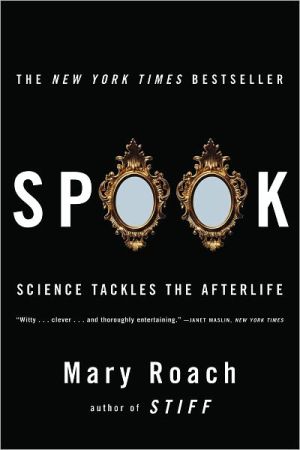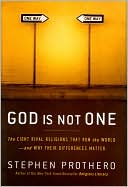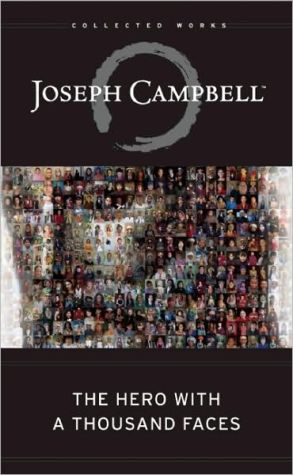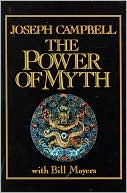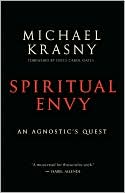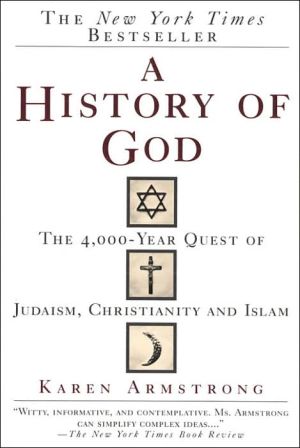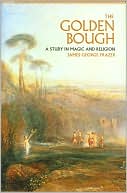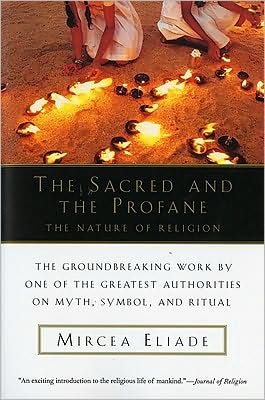Spook: Science Tackles the Afterlife
"Equal parts Groucho Marx and Stephen Jay Gould, both enlightening and entertaining."—Sunday Denver Post & Rocky Mountain News\ The best-selling author of Stiff: The Curious Lives of Human Cadavers now trains her considerable wit and curiosity on the human soul. What happens when we die? Does the light just go out and that's that—the million-year nap? Or will some part of my personality, my me-ness persist? What will that feel like? What will I do all day? Is there a place to plug in my...
Search in google:
"Equal parts Groucho Marx and Stephen Jay Gould, both enlightening and entertaining."—Sunday Denver Post & Rocky Mountain News The New York Times Book Review - Kate Zernike Roach is a wonderfully vivid writer and most fun when she is exploring the world of the modern soul-searchers. Spook, like Stiff, is a "who knew?" kind of book, and it's fascinating to discover that a researcher in the 21st century would be, say, trying to weigh the consciousness of a leech. And as a reporter, Roach has a keen eye for the perfect detail, an ear for the zinging quotation and a finely tuned sense of the preposterous…Spook is less about figuring out what science says about the afterlife than it is a celebration of the wide, occasionally crazy spectrum of human pursuit.
\ From Barnes & NobleThis book might be best described as the logical sequel to Roach's Stiff: The Curious Lives of Human Cadavers. After probing autopsies, the funeral home business, and the implications of human composting, it seems only natural that the author would turn her attention to the afterlife. To learn what she can about the Other Side, she enrolls in an English school for mediums; banters with reincarnation researchers; and interviews a Duke University professor about a plan to weigh the consciousness of a leech.\ \ \ \ \ Newsweek“The general reader’s ideal emissary to the arcana of serious science. . . . Roach’s writing has what science has so far failed to find: a divine spark.”— Malcolm Jones\ \ \ New York Times“Dependably witty, especially when it ventures far into the ether. . . . [Roach] makes a clever investigator and a thoroughly entertaining, if skeptical, tour guide.”— Janet Maslin\ \ \ \ \ Pittsburgh Union-Tribune“Investigative reporting has no lighter, more irreverent spirit than Mary Roach. . . . Spook is enormous fun.”— David A Walton\ \ \ \ \ New York TimesDependably witty, especially when it ventures far into the ether. . . . [Roach] makes a clever investigator and a thoroughly entertaining, if skeptical, tour guide.— Janet Maslin\ \ \ \ \ NewsweekThe general reader’s ideal emissary to the arcana of serious science. . . . Roach’s writing has what science has so far failed to find: a divine spark.— Malcolm Jones\ \ \ \ \ Pittsburgh Union-TribuneInvestigative reporting has no lighter, more irreverent spirit than Mary Roach. . . . Spook is enormous fun.— David A Walton\ \ \ \ \ Janet MaslinHow serious is Ms. Roach in wondering about life after death? Not very. She appears more concerned with comic effects than cosmic ones, and she is constantly on the lookout for entertainingly bizarre details and turns of phrase…Spook has great appeal on the basis of Ms. Roach's droll research. But it is afflicted with the same problem common to its spirit-world subjects: insubstantiality. Although she does her best to avoid what the book calls "the Big Shrug," she is not always able to learn much from the string of research outings described here.\ —The New York Times\ \ \ \ \ Kate ZernikeRoach is a wonderfully vivid writer and most fun when she is exploring the world of the modern soul-searchers. Spook, like Stiff, is a "who knew?" kind of book, and it's fascinating to discover that a researcher in the 21st century would be, say, trying to weigh the consciousness of a leech. And as a reporter, Roach has a keen eye for the perfect detail, an ear for the zinging quotation and a finely tuned sense of the preposterous…Spook is less about figuring out what science says about the afterlife than it is a celebration of the wide, occasionally crazy spectrum of human pursuit.\ —The New York Times Book Review\ \ \ \ \ Publishers WeeklyThe deadpan humor and subtle wit that journalist Roach (Stiff) is known for is overshadowed by Quigley's exaggerated delivery in this disappointing audio adaptation. Like Roach's previous book, this exploration of the afterlife is loaded with unusual historical facts, oddball encounters and humorous observations. Unfortunately, Quigley performs rather than reads the material, and her snarky, knowing tone is as out of sync with Roach's earnest investigation as are her atrocious character voices. For reincarnation researcher Dr. Rawat, she adopts a heavily accented voice as subtle as The Simpsons' Hindu grocer, Apu. Professor Gerry Naham is lent a nasally, squeaky voice, apparently to convey his nerdiness (he aims to build a system that can detect the departure of a dying person's soul using electromagnetic energy). Then there's sheep rancher Lewis Hollander, whom Quigley gives the mellow voice of a stoned hippie despite Roach's description of him as "a kindly, soft-spoken guy"; one almost expects Hollander to preface his description of his homegrown soul-weighing experiment with "dude." Quigley transforms these intriguing, eccentric people into caricatures and makes this a grating listen. Simultaneous release with the Norton hardcover (Reviews, Aug. 22). (Oct.) Copyright 2006 Reed Business Information.\ \ \ \ \ Library JournalThis is not about ghosts-rather, science writer Roach (Stiff) looks to science to determine whether the human "soul" exists in death. Unfortunately, neither science nor Roach is up to the task. Three of the 12 chapters deal with contemporary science (infrasound and electromagnetic waves, the personal computer, and the operating room ceiling where University of Virginia cardiologists placed equipment to monitor out-of-body, near-death experiences). The remaining chapters are devoted to such topics as medium school, the weight of a soul, the last surviving ectoplasm sample, and reincarnation. Readers come away with little new information or insight into the question originally posed but with many pieces of arcane trivia. Although deftly written and at times humorous, this book is superficial overall. Recommended for only the largest collections or where Stiff was popular. [See Prepub Alert, LJ 6/1/05.]-Michael D. Cramer, Schwarz BioSciences, RTP, NC Copyright 2005 Reed Business Information.\ \ \ \ \ Kirkus ReviewsScience writer Roach, having told all about cadavers in Stiff (2003), progresses to the logical next step: What happens after death?Her journey begins in India, where she tracks down stories of children purported to be reincarnations of dead relatives. Lots to debunk here. Then on to all-but-unbelievable experiments to weigh, see or tape-record the soul, as well as tales of celebrated mediums, spirit guides and ectoplasm. Did you know there are mediums being tested in university labs today, and that you can attend medium school in England? While researching this, Roach learned a good bit about human psychology of the "if you wanna believe it it's true" variety. She makes the point that, historically, investigators of the afterlife often capitalize on the latest scientific discoveries of new sources of energy so that they can be invoked to power a soul or, alternatively, explain away a phenomenon. Thus, the perception of ghosts might be due to some people's sensitivity to very low frequency "infrasound." One of her best ghost stories concerns a revised last will and testament whose discovery was attributed to a ghost telling his son where it could be found. The case went to trial and the ghost won. (There's a neat follow-up.) For all Roach's skeptical and often hilarious accounts, she is an eager volunteer and ready to accept evidence if evidence there be. Thus she reports that experiments are under way to study near-death experiences in which patients are briefly "killed" during surgery to implant defibrillators. If even one person reports seeing an image on a ceiling-mounted laptop in the O.R., whose screen faces the ceiling, she might be convinced. As it is, she admits to not "knowing,"but sort of believing in ghosts. Throughout, she is critical and witty-e.g., speaking of postmortem "recordings," she says there is one of Chopin, "who has, we learn, resumed composing following a short stint of decomposing."Truly deft handling of the (mostly) daft.\ \
